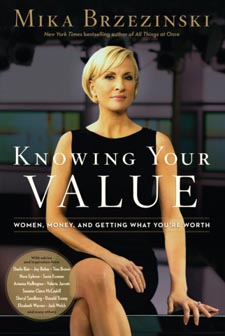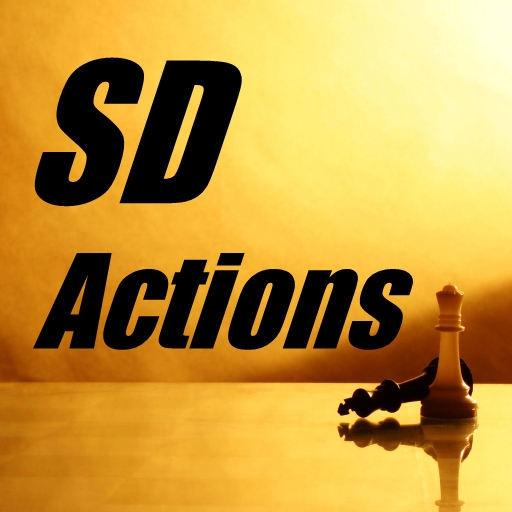Knowing Your Value

by Mika Brzezinski
About the Reference
Knowing Your Value by Mika Brzezinski is a self confession and personal growth story about how a now prominent MSNBC morning show host discovered, demanded, and won compensation more inline with that of her peers. The story is complimented by the personal value stories and insights of over a dozen other leaders.
Why You Should Not Buy This Book
StrategyDriven Contributors dislike Knowing Your Value for several reasons. First, the book lacks sufficient method for actually determining your personal worth to an organization. Its premise is that an individual’s value contribution should be based on the compensation of others in similar positions. The shortfall with this argument is that each unique individual contributes differently to the organization and so offers his/her own value proposition. Additionally, there is an underlying assumption that the comparison employees have accurately identified and won their value – a premise that is often not true. Second, the book maintains a foundational assumption that the author was treated differently because she is a woman. While this may or may not be true, the comparison employees identified were noted as contributing significantly greater intellectual and creative works to their organization; suggesting that they were rightfully compensated more. Brzezinski discounts the fact that men, minorities, and other classes of people may also be undervalued, for the reasons she presents, and that everyone should methodically seek to identify and demand their value from employers.
For its shortfalls in revealing how to calculate one’s personal value contribution and its faulted underlying logic and assumptions, StrategyDriven Contributors recommend that our readers not purchase or invest time reading Knowing Your Value.
Alternative Recommendation
StrategyDriven Contributors believe it is highly important for an individual to know his/her value and to aggressively seek it. Identifying one’s worth is not a matter of simple comparison with others or a fight against perceived discrimination but rather a deliberate methodological evaluation of the value contribution of the individual to the organization followed by the positive assertion of that value to those who can correct any imbalance. Such a methodology is presented by Larry Myler, Chief Executive Officer of By Monday, in his book, Indispensable By Monday: Learn the Profit-Producing Behaviors that will Help Your Company and Yourself.
Click here to read a review of Indispensable By Monday and listen to our StrategyDriven Podcast interview with Larry Myler on determining your organizational value.

 Since working for his family’s boating business to founding his company CMI (Crusading, Marauding Interveners), Bruce Hodes has dedicated himself to helping companies grow by developing executive leadership teams, business leaders and executives into powerful performers. Bruce’s adaptable Breakthrough Strategic Business Planning methodology has been specifically designed for small-to-mid-sized companies and is especially valuable for family company challenges. In February of 2012 Bruce published his first book Front Line Heroes: How to Battle the Business Tsunami by Developing Performance Oriented Cultures. With a background in psychotherapy, Hodes also has an MBA from Northwestern University and a Masters in Clinical Social Work. Contact Bruce via email at
Since working for his family’s boating business to founding his company CMI (Crusading, Marauding Interveners), Bruce Hodes has dedicated himself to helping companies grow by developing executive leadership teams, business leaders and executives into powerful performers. Bruce’s adaptable Breakthrough Strategic Business Planning methodology has been specifically designed for small-to-mid-sized companies and is especially valuable for family company challenges. In February of 2012 Bruce published his first book Front Line Heroes: How to Battle the Business Tsunami by Developing Performance Oriented Cultures. With a background in psychotherapy, Hodes also has an MBA from Northwestern University and a Masters in Clinical Social Work. Contact Bruce via email at  Alona Banai, CMI’s office manager, wears many hats. She works behind the scenes managing the client process. Alona is the KeyneLink System Administrator for many of CMI’s clients and manages CMI’s Online Marketing including the Company Website, Newsletter, and Social Media.
Alona Banai, CMI’s office manager, wears many hats. She works behind the scenes managing the client process. Alona is the KeyneLink System Administrator for many of CMI’s clients and manages CMI’s Online Marketing including the Company Website, Newsletter, and Social Media. Budget performance is important to the successful management of any organization and to the personal performance of individual executives and managers. Consequently, budget reviews occur on a monthly or quarterly basis; allowing enough time to pass for meaningful trends to develop but not so much time that corrective action could not be taken so to ensure a business group remains on budget.
Budget performance is important to the successful management of any organization and to the personal performance of individual executives and managers. Consequently, budget reviews occur on a monthly or quarterly basis; allowing enough time to pass for meaningful trends to develop but not so much time that corrective action could not be taken so to ensure a business group remains on budget.
 Jeffrey Gitomer is the author of The Sales Bible, Customer Satisfaction is Worthless Customer Loyalty is Priceless, The Little Red Book of Selling, The Little Red Book of Sales Answers, The Little Black Book of Connections, The Little Gold Book of YES! Attitude, The Little Green Book of Getting Your Way, The Little Platinum Book of Cha-Ching, The Little Teal Book of Trust, The Little Book of Leadership, and Social BOOM! His website,
Jeffrey Gitomer is the author of The Sales Bible, Customer Satisfaction is Worthless Customer Loyalty is Priceless, The Little Red Book of Selling, The Little Red Book of Sales Answers, The Little Black Book of Connections, The Little Gold Book of YES! Attitude, The Little Green Book of Getting Your Way, The Little Platinum Book of Cha-Ching, The Little Teal Book of Trust, The Little Book of Leadership, and Social BOOM! His website,  Access StrategyDriven everywhere!
Access StrategyDriven everywhere!